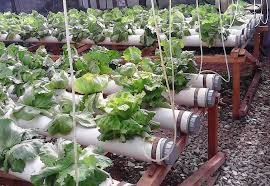Miramar International College, a Nairobi-based technical college started in 2016, is providing students with three months training and loans to create hydroponic farms, as part of a mission to manufacture and market hydroponic equipment countrywide.
With the population ballooning, but the land mass remaining static, hydroponics is a system of tiered farming without soil, which grows plants intensively in water-based, nutrient-rich solutions. This ensures the germination and growth of quality plants and greatly increases the speed of harvests.
RELATED CONTENT:Hydroponic tomato farming offers Juja youth better income
The college, which is driven by a vision of empowering vulnerable youth, is offering three months training in hydroponic farming technology for free, covering crop science, entrepreneurship and marketing.
On completion, students are advanced a loan of Sh800,000 per pair by KCB through a partnership between the college and the bank to purchase the hydroponics equipment and construct warehouses to house the equipment.
“The partnership between KCB bank and institution is to encourage youths who are usually cash strapped to venture into farming, as setting up hydroponics can be expensive, which makes many youth shy away from it,” said Steve Nyawanga, Miramar International College’s hydroponic technician.
The hydroponics are set up in the warehouse by the institution’s technicians who later provide extension services when farming begins. As part of the agreement between the students and the institution they can only grow capsicums, lettuce and tomatoes, as the institute needs to ensure the loans are repaid and it provides a ready market for these products, buying from farmers at current market prices.
From these proceeds the students pay back the bank loan.
“We provide a ready market for these products to enable smooth repayment of the loan and to make this farming sustainable as some money is left to the farmer to enable planting in the next season,” said Nyawanga.The institution champions organic farming as the market for organic food is growing rapidly as consumers become more health conscious.“We want the products from these farms to be organic to protect consumers from ingesting harmful pesticides. We train our farmers how to fight pests and diseases using organic methods like planting other plants that repel diseases and pests,” he said.

Photo by Hydroponics Kenya
Hydroponic farming reduces water wastage and reduces the risk of pest and diseases by 99 per cent, compared with conventional farming, as getting rid of soils helps make your plants less vulnerable to soil-borne pests like bird and groundhogs and diseases like Fusarium, Pythium and Rhizoctonia.
Instead, the technology allows farmers to control the whole environment for their plants’ growth, across temperature, lights, moisture, and especially nutrients. Plants are placed in ideal conditions, while nutrients are provided in the right amounts directly to the root systems.
This ensures that the plants do not waste time searching for nutrients and focus on growing, which results in high yields.
The college which is located at Muthiga, graduated 700 students December last year. The training has benefited students from Nyandarua, Nyeri, Kiambu, Thika, Kajiando and Nairobi.